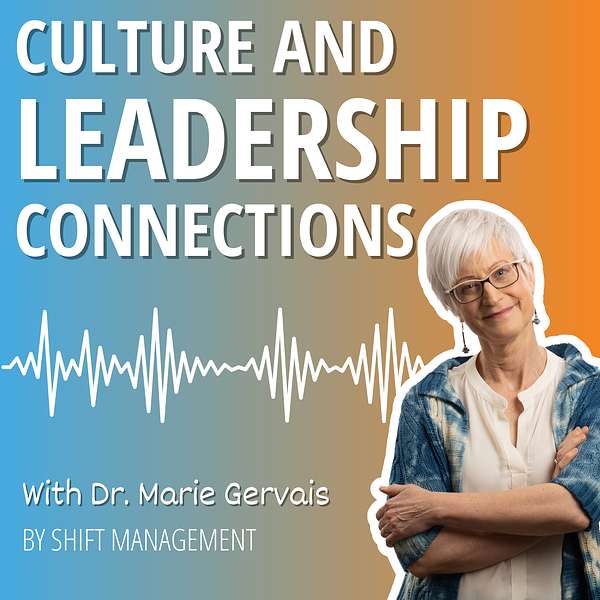
Culture and Leadership Connections Podcast
Culture and Leadership Connections Podcast: where culture, communication, and context meet at work. Discover what cultural influences have formed the careers of noteworthy leaders in a variety of professions, by exploring the groups that shaped who they are today. Learn about the collective context and experiences that affect their worldview, leadership style, workplace communication and behaviour.
Culture and Leadership Connections Podcast
Insights: What is Career Trauma?
What is Career Trauma?
Imagine the teacher, interrupted mid-lesson by her principal's inappropriate whispers, or the immigrant worker denied a bathroom break, only to be mocked as he wets himself.
Consider the unfairness of a negative evaluation and pay cut from someone who's never even seen your work or being passed over for a promotion in favor of the boss's less qualified nephew.
Who hasn't felt the burnout from impossible demands or the frustration of training your replacement?
All these experiences cause us work wounds, which require us to be intentional to heal.
Importance of Emotional Safety in Workplaces:
According to Employment and Social Development Canada, key risk factors for poor workplace psychological safety include high demand and low control, unfair treatment, harassment, and lack of professional development.
A report from the Centre for Addictions and Mental Health revealed that 500,000 Canadians miss work daily due to these issues, costing organizations $200 billion annually as of 2023.
This trauma leads to hyper-vigilance and increased anxiety. However, recognizing emotional safety cues and fostering a safe environment are crucial for healing career trauma.
Doctor Steven Porges' research on polyvagal theory explains that by identifying and processing emotions and sensations, the amygdala's threat reaction is reduced. This allows for the release of emotions tied to recent unpleasant memories, improving overall emotional balance and perception of current situations, without having to revisit past traumas.
While coaching or therapy can significantly help with career trauma, individuals can start their healing process by intentionally focusing on the following three key aspects:
Breathe Intentionally: Focus on the breath to divert the amygdala's attention from a threat response to a safety response. During a virtual training with oil field managers, one manager had a meltdown due to personal and work-related stress, including the recent loss of a worker and family challenges. I suggested he take a moment to breathe, which visibly calmed him. We then took a few collective breaths, further calming the entire group. The manager explained that a colleague had tragically drowned in a tailings pond, and this trauma had amplified his existing stress. However, the simple act of intentional breathing helped him and the group regain composure, highlighting the power of mindful breathing.
Move: When the nervous system feels trapped or tired, it becomes dysregulated, hindering movement and causing distress. To regulate the nervous system, it's essential to recognize and honor the body's need for movement, much like dogs naturally do through stretching and shaking. Dogs rest and heal after conflicts, then resume their normal activities without forcing themselves to overwork. Similarly, humans should balance movement with rest to maintain emotional regulation. So, when tempted to overwork or skip breaks, ask yourself, "Would my dog do this?" First, breathe intentionally, and second, move even just a little to help regulate your emotions.
Connect with Others: Social connection is crucial for healing career trauma, as isolation exacerbates feelings of distress and can shorten life expectancy by up to nine years due to loneliness. In the world's five blue zones, where people live longer and healthier lives, strong social connections are a common factor. Human beings are inherently wired for connection; even babies react positively to emotional connection. In these communities, people regularly interact and care for each other across generations. To maintain emotional regulation, it's essential to connect with others, share experiences, and support each other.
